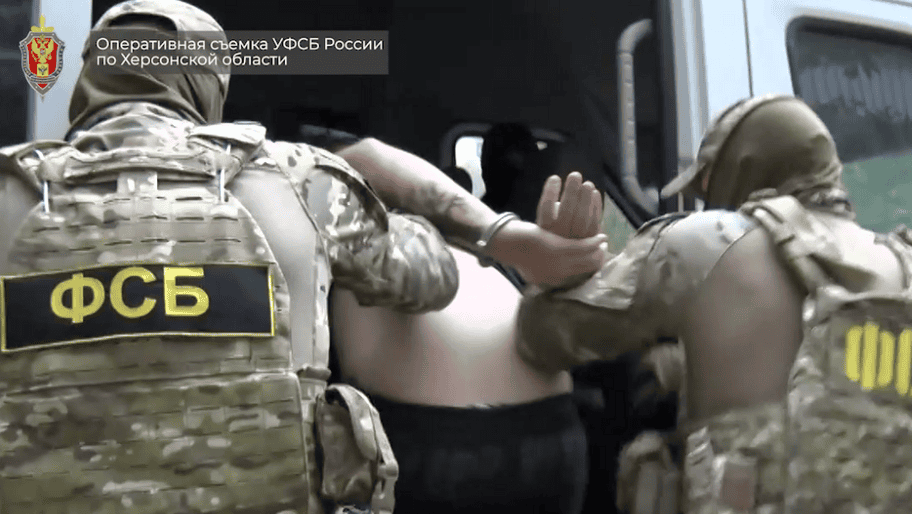

At least 59 detained and “convicted” for political reasons in the Russian-occupied territories in September
At least 30 people were detained for political reasons in the Russian-occupied Ukrainian territories in September. Most of the detentions (15) were in Crimea, mostly as a result of a tip-off from the Crimean SMERSH Telegram channel, which specialises in online denunciations against those who openly or privately expressed support for Ukraine or criticism of the Russian authorities and the war it is waging. The second place goes to the occupied part of Luhansk region (nine detentions).
While in the case of Crimea, it is mainly about statements and behaviour on social media, in the territory controlled by the Luhansk “republic”, either allegedly former Ukrainian military personnel or those who allegedly passed information to the Ukrainian armed forces and intelligence services are detained. In at least one case, it was claimed, the information was transmitted from a city without internet access. In other occupied territories, as a rule, people are also detained for allegedly cooperating with the Ukrainian army and special services.
At least 29 other people were sent to prison by “courts” in the occupied territories. Among them, the largest number of “sentences” were passed in occupied Donetsk against the defenders of Mariupol. Ten men were “sentenced” to terms ranging from 16 to 27 years in maximum security prisons, accused, like all previous “defendants” from among the city’s defenders, of intentional murder or other deliberate harm to civilians. Most of the rest were “tried” for “espionage” for Ukraine, participation in the preparation of “sabotage” or “terrorist operations,” and “treason”.
For example, in the occupied part of the Kherson region, two 20-year-old men were sentenced to 8.5 and 5 years in prison for allegedly planning to blow up a bridge in collaboration with Ukrainian special services.
In the occupied part of the Zaporizhzhia region, a 62-year-old man was “sentenced” to 12 years in a maximum security prison for, as claimed, collecting and passing on to the Security Service of Ukraine information about the brands and registration numbers of cars owned by “Russian law enforcement officers”.
The Parliamentary Assembly of the Council of Europe, in its latest resolution on Ukraine, adopted on 1 October 2024, drew attention to numerous violations of international humanitarian law by Russia in relation to prisoners of war and civilian prisoners. PACE pointed out, in particular, the “cumulative” charges against prisoners of war and the fact that they should not be “tried” but are in fact “tried” only for belonging to the armed forces and participating in hostilities.
PACE also drew attention to the abusive conditions of detention, ill-treatment of Ukrainian prisoners of war and civilian prisoners and torture in the occupied territories and in Russia, including starvation, denial of medical care, verbal abuse, systematic beatings and sexual violence, as well as the lack of access to them by their families and representatives of international humanitarian organisations. It also referred to forced labour in the occupied territories of Ukraine, “although only few direct witnesses are still alive to bear testimony, since many have died when being forced into demining operations.”
In the resolution, the Assembly, in particular, called on the International Committee of the Red Cross to “make an exception” to its confidentiality approach and to make public the obstacles it faces while attempting to gain access to Ukrainian prisoners in the Russian-occupied territories and in Russia.